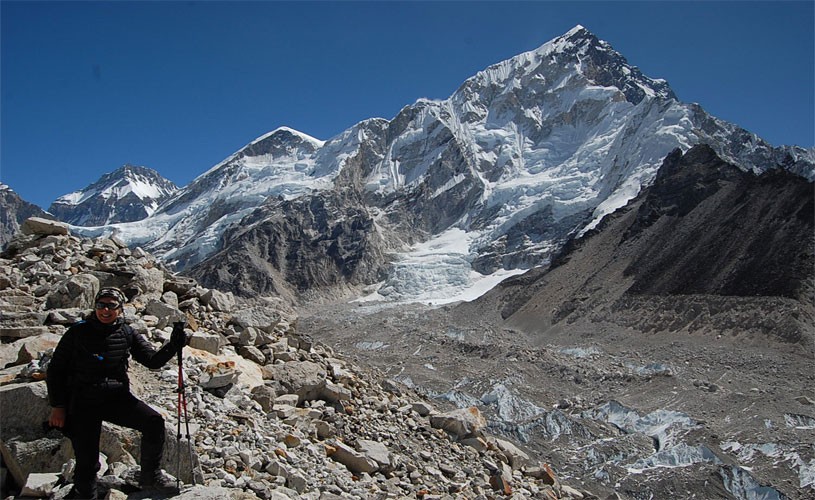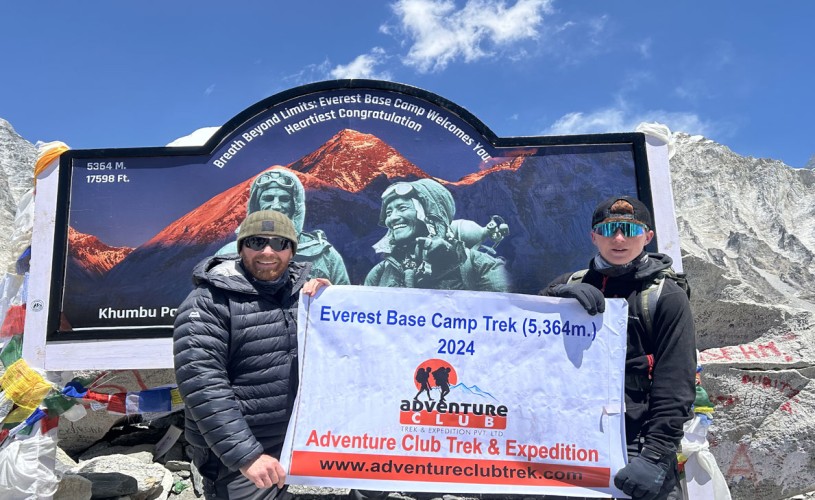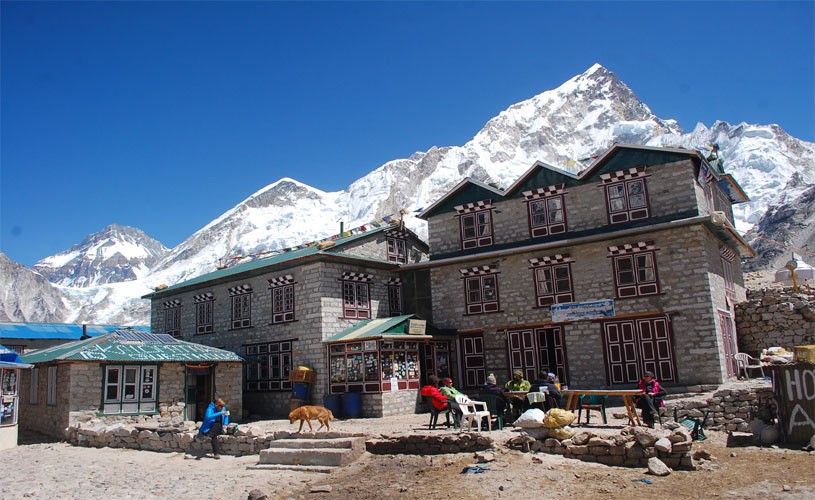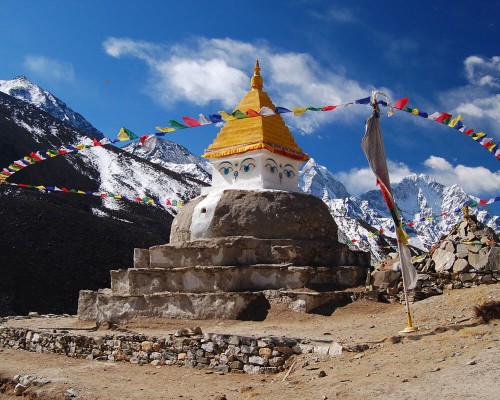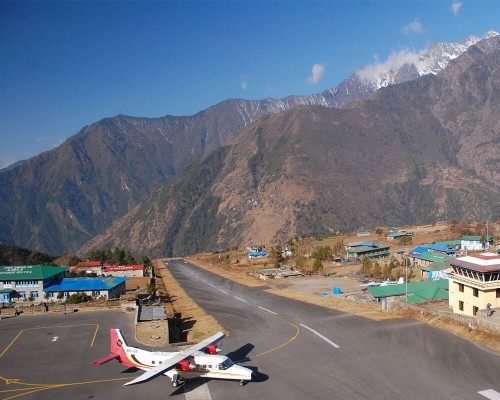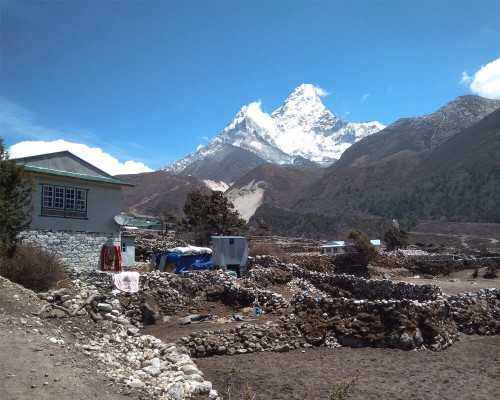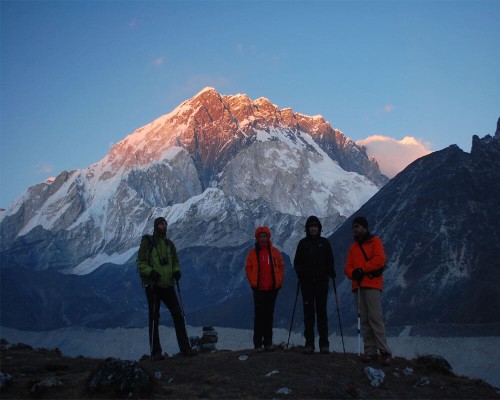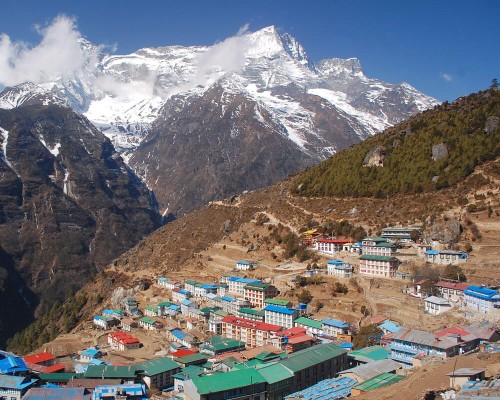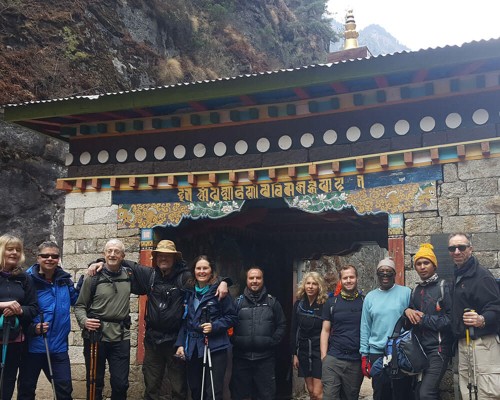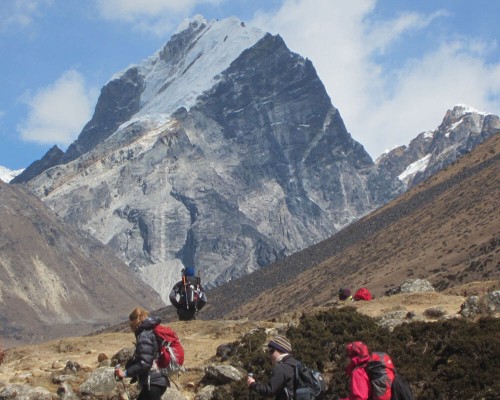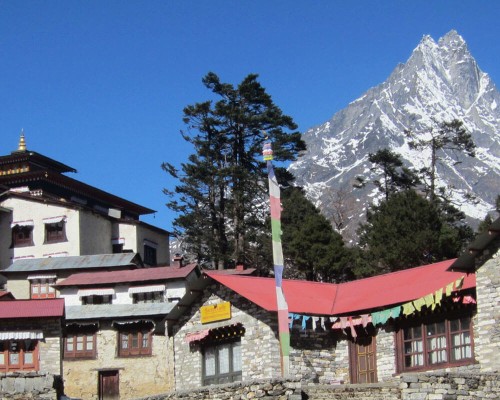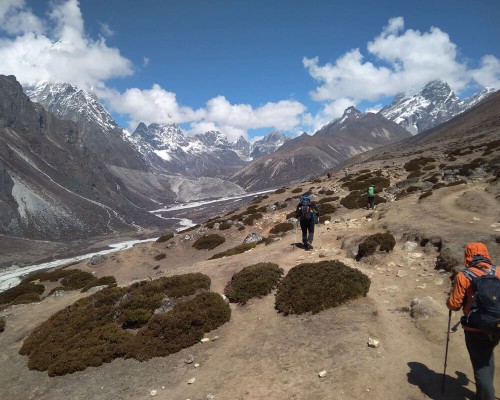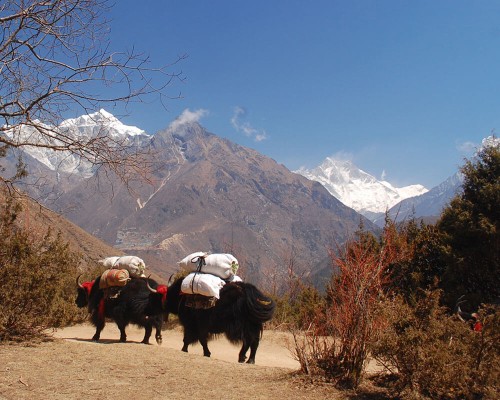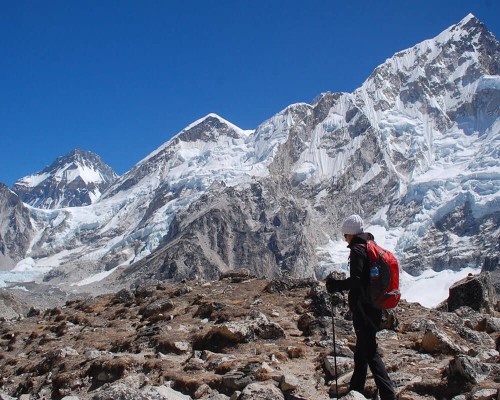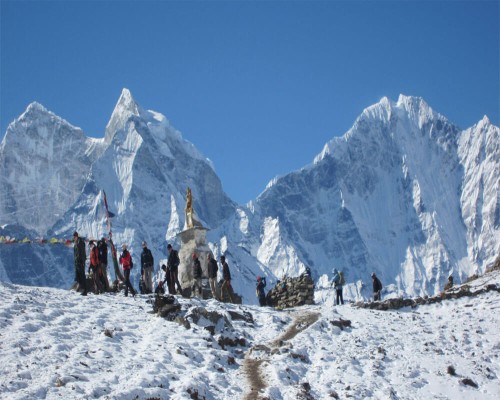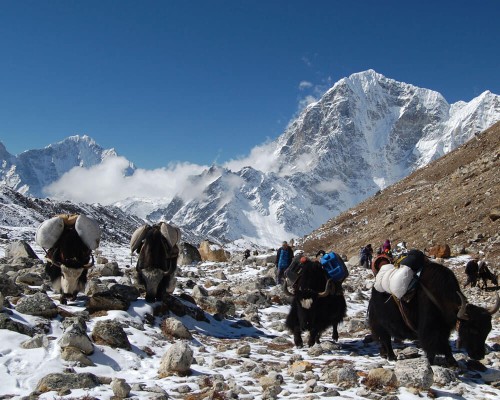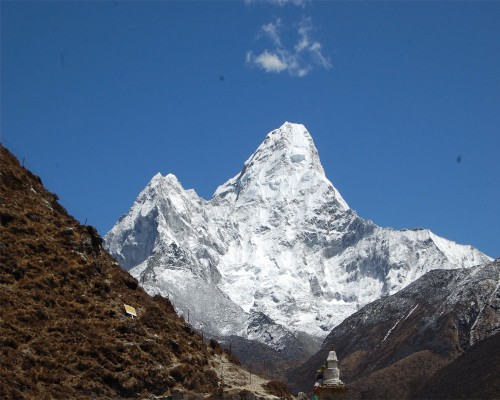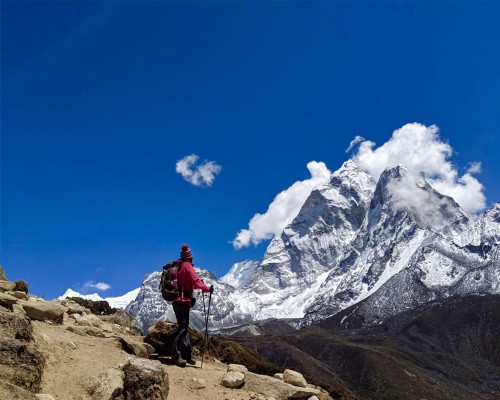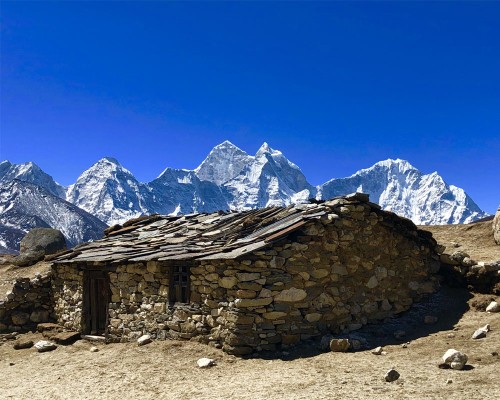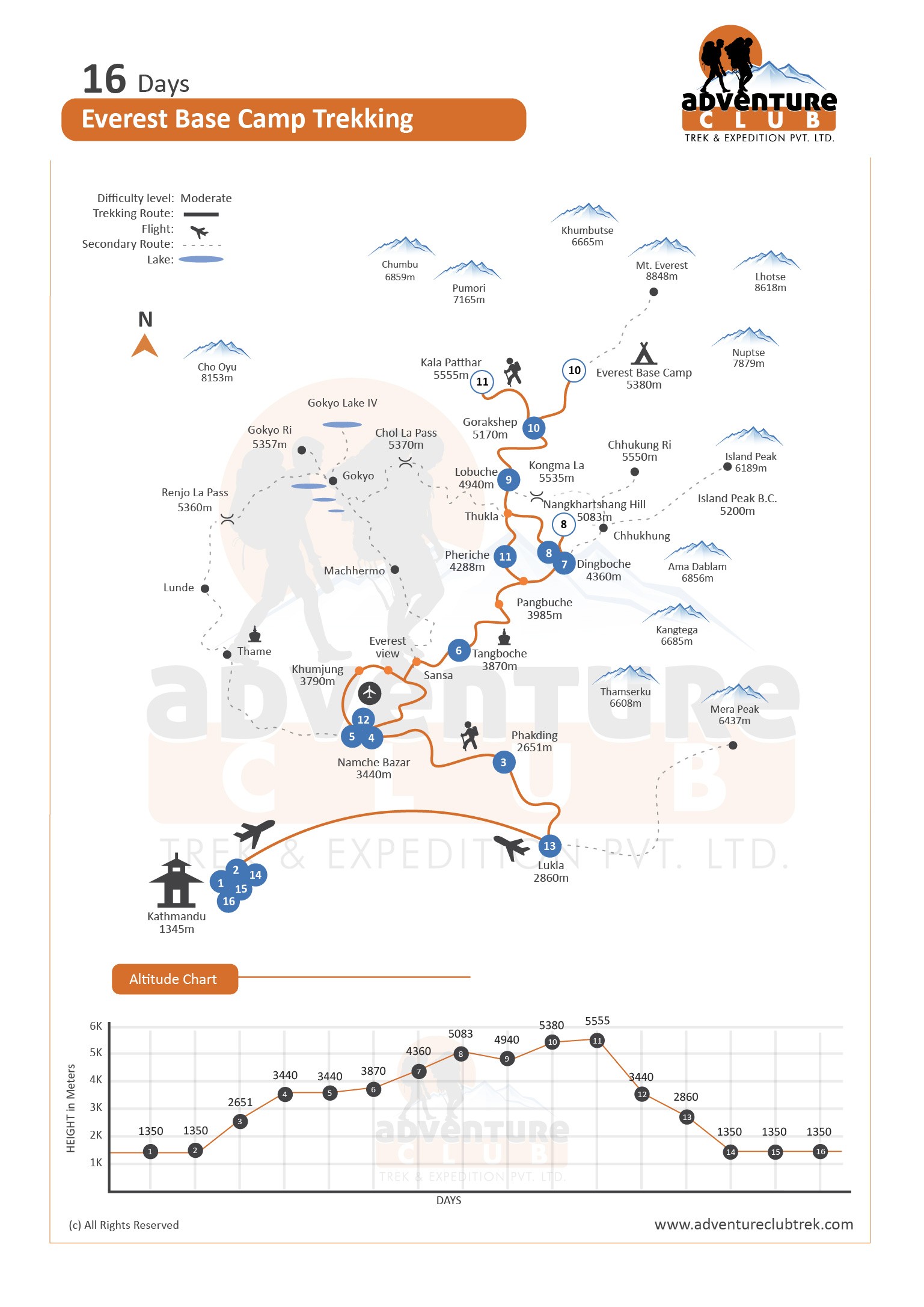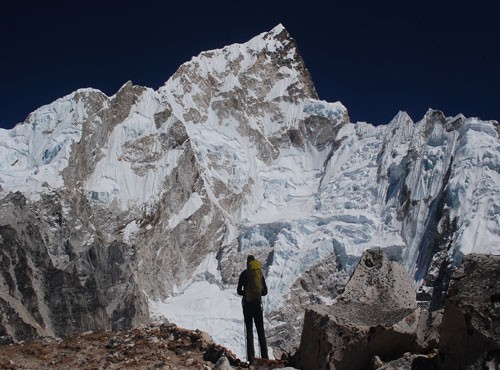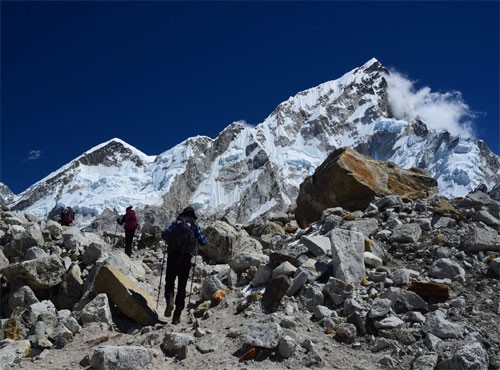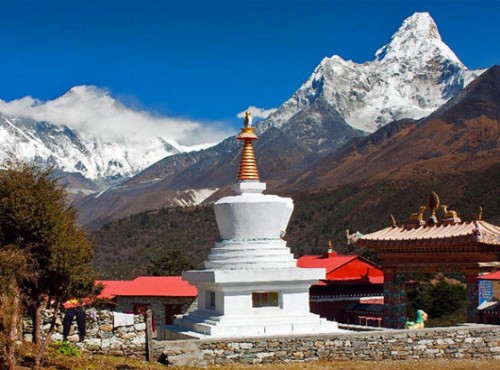Everest Base Camp Trek 16 Days – Package Cost 2026/2027
Looking for a truly rewarding Himalayan adventure in 2026/2027? The Everest Base Camp Trek (16 Days) takes you deep into Nepal’s legendary Khumbu region, following the classic trail through Sherpa villages, alpine valleys, and dramatic high-altitude landscapes.
The journey leads to Everest Base Camp (5,364 m) and offers close-up views of iconic Himalayan peaks, including Mount Everest, Lhotse, Ama Dablam, and Makalu. This trek is more than reaching a famous destination. It is a gradual and meaningful journey through the heart of the Himalayas, blending mountain scenery, cultural heritage, and personal achievement.
Before the trek starts, take a guided tour of Kathmandu and its UNESCO World Heritage Sites. This easy cultural tour gives a clear view of Nepal’s history, art, and daily traditions, making it a great way to begin the Everest Base Camp Trek before heading into the mountains.
Depending on the season, the trail passes through blooming rhododendron forests, crosses long suspension bridges above rushing rivers, and winds past mani walls and prayer flags that reflect the region’s deep Buddhist traditions. The adventure begins with a scenic flight from Kathmandu to Lukla, one of the world’s most renowned mountain airstrips. From Lukla, the route gently ascends through Phakding and Monjo before reaching Namche Bazaar (3,440 m).
As the main Sherpa trading center, Namche is a key acclimatization stop, offering bakeries, small museums, monasteries, and sweeping views of the surrounding peaks. In terms of difficulty, the Everest Base Camp Trek is considered moderate to challenging. No technical climbing skills are required, but the combination of altitude, daily walking, and changing terrain makes preparation important. Most days involve 5–6 hours of walking at a steady pace.
This 16-day itinerary includes two dedicated acclimatization days, allowing safe altitude adaptation and reducing the risk of altitude-related issues as elevations exceed 5,000 meters. Cultural encounters are a highlight of the trek. The Everest region is home to the Sherpa people, known for their hospitality, resilience, and deep spiritual connection to the mountains. Along the trail, trekkers experience daily village life, spinning prayer wheels, and centuries-old monasteries, where morning chants create a calm contrast to the rugged Himalayan landscape.
The trail follows the Dudh Koshi River, crossing high suspension bridges shared with yak caravans and local porters. Glaciers, icefalls, and snow-covered peaks dominate the skyline. Despite its popularity, the Everest Base Camp trekremains special due to its balance of accessibility, comfort, scenery, and cultural richness.
The cost of the Everest Base Camp Trek in 2025/2026 typically ranges from USD 1,299 to 1,689 for a fully guided 16-day program. This usually includes permits, domestic flights, accommodation, meals during the trek, and experienced local guides.
The acclimatization hike to Nangkartshang Hill is physically demanding but important for adjusting to high altitude. The trail from Gorak Shep to Everest Base Camp is rough and rocky, and during snowy periods, microspikes are often needed for safety. The climb to Kala Patthar is a long, steady uphill walk and is one of the most challenging parts of the trek.
On clear days, we can see Mount Everest before reaching Namche Bazaar. The mountain stays visible along sections of the trail until Pangboche, then disappears from view and only returns when you arrive at Gorak Shep.
For the return journey, the Everest Base Camp trek descends through Pheriche instead of Dingboche. This route is shorter and quieter and offers a more peaceful walk back through the Khumbu Valley.
The Key Highlights of the Everest Base Camp 16-Day Trek:
- Visit UNESCO World Heritage Sites in the Kathmandu Valley.
- Begin with an exhilarating flight to Lukla, offering breathtaking mountain views.
- Explore Sherpa villages and immerse yourself in their rich culture.
- Cross thrilling suspension bridges over rushing rivers.
- Rest and acclimatize at the vibrant Namche Bazaar.
- Enjoy panoramic views during a hike to the Everest View Hotel.
- Visit the serene Tengboche Monastery, framed by majestic peaks.
- Reach Gorak Shep, the gateway to Everest Base Camp.
- Witness the awe-inspiring Khumbu Icefall up close.
- Ascend Kala Patthar for a magical sunrise over Mount Everest.
- Conclude with a flight to Kathmandu.
Alternative Everest Base Camp Trek Options
The 16-day Everest Base Camp Trek is a classic choice, but there are also several alternative options to suit different time limits, fitness levels, and travel preferences. Each option offers a unique way to experience the Everest region.
Everest Base Camp Trek—14 Days
Difficulty: Moderate
Price: $1,439
This trek follows the same route as the 16-day EBC trek but includes only two nights in Kathmandu. It is ideal for travelers with limited time.
Everest Base Camp with Gokyo-Cho La Pass
Duration: 18 Days
Difficulty: Strenuous
Price: $1,719
Designed for very fit and experienced trekkers, this route includes the scenic Gokyo Lakes and crosses the challenging Cho La Pass.
Everest Base Camp Trek with Helicopter Return
Duration: 12 Days
Difficulty: Moderate
Price: $2,249
This option is for trekkers who hike up to Everest Base Camp and return by helicopter from Gorak Shep, saving time and reducing the effort of the descent.
Why Book the Everest Base Camp Trek with Adventure Club?
Experienced Local Guides: Our guides have been working with us for many years and know the Everest region very well. They understand the trails, altitude challenges, and local culture and are there to support you every day.
Guaranteed Departures: All Everest Base Camp trips listed on our calendar are guaranteed to run. Once you book with us, your trek will not be cancelled due to low numbers.
Clear Group Information: You will know in advance who you are trekking with and when the trip starts. We make sure everything is clear so there is no confusion before the journey begins.
Personal Trip Briefing in Kathmandu: After you arrive in Kathmandu, we provide a detailed trek briefing. We explain the route, daily walking hours, altitude safety, and packing tips, and answer all your questions before the trek starts.
24/7 Customer Support: Our team is available at any time before, during, and after your trek. You can reach us easily through WhatsApp or email, with direct support from our Kathmandu office.
Free Airport Transfers: We provide private airport transfers at the start and end of your trip, so you can travel comfortably and without stress.
Essential Trekking Gear Included: We provide basic gear such as sleeping bags and down jackets at no extra cost, helping you stay warm and comfortable at high altitude.
Free Waterproof Duffle Bag: If you book a porter, you will receive a complimentary waterproof duffle bag for your trek.
Easy and Secure Booking: Our booking process is simple and secure. You can pay by credit card, upload documents online, and avoid long email exchanges.
How difficult is the Everest Base Camp Trek (14 Days)?
The Everest Base Camp Trek is challenging, but it is achievable for most people with good preparation and a positive mindset. Every year, thousands of trekkers from all over the world complete this journey, many of them without prior high-altitude trekking experience. The key challenges are long walking days, changing terrain, and altitude rather than technical climbing.
On most days, you will walk for about 5 to 6 hours, usually starting around 8:00 in the morning and finishing by mid-afternoon. This pace allows time for rest, acclimatization, and enjoying the scenery. The trail includes stone steps, forest paths, suspension bridges, and gradual uphill climbs. While some sections can feel demanding, the route is well established and clearly marked.
The biggest factor is altitude. As you gain height, the air becomes thinner, which can make walking feel slower and more tiring. This is why the 14-day itinerary includes rest days, especially in places like Namche Bazaar and Dingboche. With proper acclimatization, steady pacing, and listening to your guide, most trekkers manage the altitude well. The incredible mountain views, Sherpa villages, and sense of achievement make the effort worthwhile.
What is the best time for the Everest Base Camp Trek?
The best times to trek to Everest Base Camp are spring (March to May) and autumn (September to November). These seasons offer the most stable weather, clear skies, and excellent mountain views, making them ideal for both first-time and experienced trekkers.
In spring, the days are generally mild, and the trails come alive with blooming rhododendrons at lower elevations. Temperatures in Namche Bazaar (3,440 m) usually range between 3°C and 9°C, while nights are colder at higher altitudes. This season is also popular with climbers preparing for Everest, adding a lively atmosphere to the region.
Autumn is known for its crisp air and very clear visibility, especially after the monsoon rains have washed dust from the mountains. Daytime temperatures are comfortable for walking, though nights can drop below freezing at higher villages. The trails are busy but well organized.
Winter (December to February) is much colder, with daytime temperatures often below zero at higher elevations. Snowfall is common, but the trails are quieter, making it a good choice for trekkers who prefer fewer crowds and are well prepared for cold conditions. The monsoon season (June to August) is generally avoided due to rain, clouds, and slippery trails, although some lower-altitude walks are still possible.
Choosing the right season depends on your comfort with weather, crowds, and trail conditions, but for most trekkers, spring and autumn provide the best overall experience.

